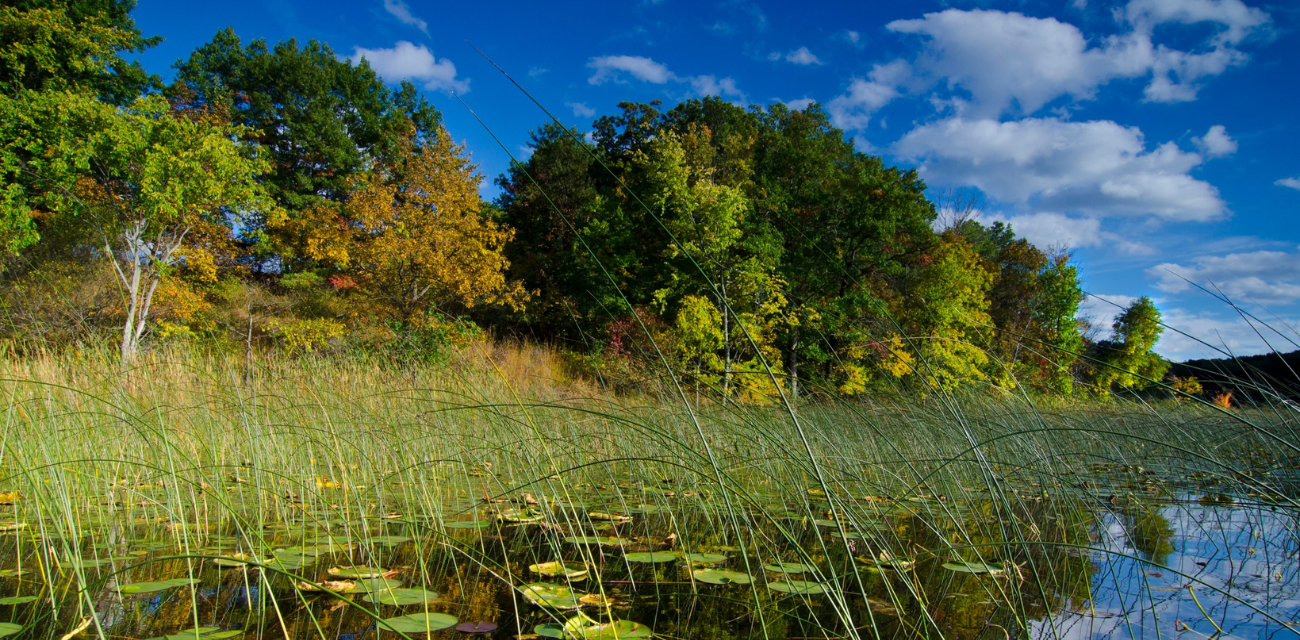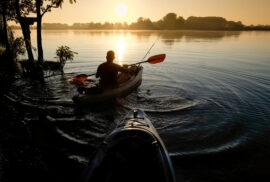Conserving land in Michigan’s most developed region

Authored by

Ellen Vial
Connect With the Experts

Ellen Vial
Conserving land in southeast Michigan is no small task. Not only is the state’s most developed region home to some of the most polluting industries in the country; keeping contiguous, natural parcels out of the hands of developers requires diligent effort. Lucky for us at the Environmental Council, Jill Lewis, executive director of our member group Southeast Michigan Land Conservancy (SMLC), is an expert.
Before I spoke with Jill last week, my knowledge of how land conservancies operated was quite limited. Like any lay person with a penchant for hiking, I knew land conservancies owned land and did a lot of trail maintenance. What I didn’t know is that there is quite a historical legal framework for land conservation, an accreditation system, and strong incentive for conservancies to work together.
SMLC was founded in 1988, when Holliday Nature Preserve in Wayne County came under threat of development. Local advocates, including notable activist Jack Smiley, formed SMLC to protect existing natural areas and acquire new properties.
“Since then, SMLC has protected almost 3,500 acres of land in the seven-county region,” Lewis told me. It currently owns 18 nature preserves outright, which can be acquired through purchase or donation. It also holds 15 conservation easements, also acquired through purchase or donation.
A conservation easement is a voluntary agreement between a property owner and a third party (such as land conservancy or government body) that restricts development on the land that would have a negative impact on the conservation values of the property. Such agreements are usually made in perpetuity by conservation-minded landowners. Per federal law, landowners who enter into conservation easement agreements are eligible for property tax exemptions relative to the forfeited potential development value.
As with any tax exemption (in this case, through easements or donations), there is the possibility for foul play. In the early 2000s, a pattern of tax fraud through conservancies on the west coast caught the attention of the federal government. Congress moved to regulate the industry, but the Land Trust Alliance, a national umbrella organization, intervened and asked Congress to allow land trusts to come up with their own method of compliance. Together, they created the Land Trust Accreditation Commission, a vehicle through which land conservancies could acquire certification of best practices.
SMLC applied for certification in June and expects to hear back early next year. The application requires extensive reporting on governance, financials, land transactions, and land stewardship.
“Even though it’s a lot of work, it’s a good thing because the requirements are things that you would want to do anyway in terms of nonprofit and land conservancy standards,” Lewis said. “It holds you accountable.”
I asked Lewis why she decided to take on such a commitment, even though it’s not required by federal or state law.
“Funders and the general public have become aware of this,” she answered, “and that’s a good thing.” She added that while current funders haven’t yet required accreditation, a handful of organizations and potential partners have signaled that it’s something they would like to see from the conservancies they work with in the future.
SMLC, for its part, has a lot of impressive work to tout for its accreditation seal. Washtenaw County residents might be familiar with their largest project, the Superior Greenway, which is a partnership between SMLC, Superior Township, Washtenaw County Parks Commission, and the City of Ann Arbor.
“The original vision for the project was to create a greenbelt between Ann Arbor and metro Detroit,” said Lewis. “We have all been working together for a long time, and together we have protected over 3,500 acres.”
 Twenty miles southwest of Detroit lies the Sibley Prairie Nature Preserve, a restored remnant of the glacial lakeplain prairie that once stretched along Michigan’s eastern shore.
Twenty miles southwest of Detroit lies the Sibley Prairie Nature Preserve, a restored remnant of the glacial lakeplain prairie that once stretched along Michigan’s eastern shore.
“Michigan used to have thousands of acres of prairie. I didn’t know we even had prairie until I started working here,” Lewis said, laughing. Today, the remnants largely exist in Wayne and Monroe Counties.
SMLC owns two nature preserves within the historic Sibley Prairie complex. The mixture of agriculture and industry pose a challenge to prairie restoration, but now that organizations like SMLC and The Nature Conservancy have secured a foothold in the area, they hope to protect more of this globally rare habitat.
SMLC’s third capstone project is the Lost Lake Nature Preserve, over 500 acres at the Oakland/Genesee County border. SMLC manages the property, and fellow Environmental Council member Six Rivers Regional Land Conservancy holds a conservation easement there.
In 2015, the combined efforts of these two groups actually helped divert the Rover natural gas pipeline that was slated to go through a protected lake. Their soft goal was to convince Energy Transfer to at least lay the pipeline closer to the road. They brought Energy Transfer representatives out to the preserve to show them the serene lake, while at the same time mounting a legal defense and public campaign. Ultimately, their lawyers successfully argued that the conservation easement was so stringent that Energy Transfer would have to divert the pipeline off the preserve entirely.
For folks interested in learning more about Southeast Michigan Land Conservancy, or visiting one of its iconic nature preserves, check out its website at www.smlcland.org.
A big “thank you” to Lewis for a fascinating conversation and her inspirational leadership in conservation!
Discover
Power environmental change today.
Your gift to the Michigan Environmental Council is a powerful investment in the air we breathe, our water and the places we love.
Sign up for environmental news & stories.
"*" indicates required fields




